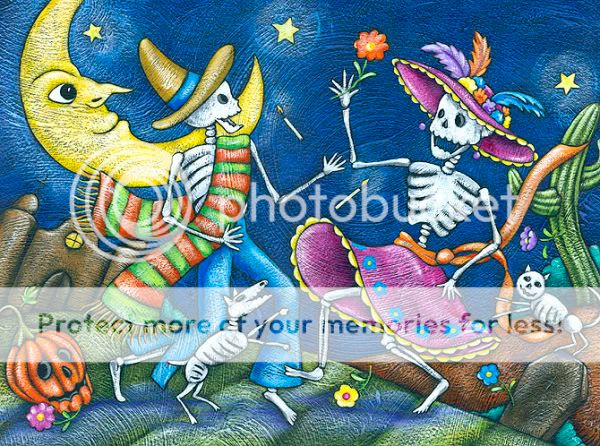Dichos tradicionales que refieren a la muerte / Sayings about dead
“No para siempre en la tierra... sólo un poco aquí”. (Nezahualcóyotl).
Concepción de la muerte de la civilización Pre hispánica.
Personas que cuidaban la tierra y concebían a las personas como seres espirituales. Conception of the death of the Pre-Hispanic civilization.People who love the land and conceived people as spiritual beings.
La muerte es una etapa de la vida, uno de los asuntos centrales del ser humano. Por esto, está presente en el lenguaje.
El español es muy dramático en su vocabularion, es el caso de emplear mucho la palabra muerte, entre otros.
Por ejemplo:
Por ejemplo:
- uyy no anoté los gastos del mes, Angélica (la contadora de Spanish in cabo) me mata.
Por supuesto Angélica no nos mata, simplemente, es algo que debíamos hacer y no lo hicimos.
- Me muero, el carro no arranca.
Además, en México, el tema de la muerte se celebra en forma diferente
al resto del mundo hispano, por ello hay referencias especiales a la muerte:
Death is a stage of life, one of the central issues of human beings. Therefore, it is present in the language.
Spanish is very dramatic, in the sense of using much the word death and so on.
For example:
- Uyy I didn´t list expenses of the month, Angelica (accountant of SIC) will kills me.
By the way, Angelica is not going to kill us, just that is something we should do and we did not.
- I die, the car will not start.
In Mexico, the subject of death is celebrated in different forms, different from the rest of the Hispanic world, so there are special regarding death. The humor and plastic is present. Dead and Art!
“Ya se lo llevó la flaca”. The skinny already carried him
“Calaca, tilica y flaca…”.Calaca weak and skinny

“Calaca, tilica y flaca…”.Calaca weak and skinny

“Ya colgó los tenis”. He already hang the tennis.
“Ya valió...” It´s gone
Ya estiró la pata”.Already streched the leg
“Ya valió...” It´s gone
Ya estiró la pata”.Already streched the leg
“Se lo llevó la huesuda”. The big bonnes woman carried him...
Ser calavera (skull)- Dedicarse a la parranda.(parties)
El Día de Muertos se recibe a los muertos y se los alimenta: The Day of the Dead we receive our dead and we feed them.
Ser calavera (skull)- Dedicarse a la parranda.(parties)
“Se me antoja una bien muerta (cerveza)”. I whim a totally dead.
“De muertos y tragones están llenos los panteones”.From dead and eatters the pantheons are full.
Expresiones que relacionana la muerte y el matrimonio (expressions that connect death and marriage)
“Hasta que la muerte los separe”.
“Hasta que la muerte los separe”.
“Matrimonio y mortaja, del cielo bajan”."Marriage and shroud down from heaven."
La buena muerte / the good death
“Buen amor y buena muerte, no hay mejor suerte”.Good love and good dead this is the best.
La muerte en canciones / The death in song
“México lindo y querido, si muero lejos de ti…”.Part of the song. Mexico beautiful and loved if I die far from you...
“Buen amor y buena muerte, no hay mejor suerte”.Good love and good dead this is the best.
La muerte en canciones / The death in song
“México lindo y querido, si muero lejos de ti…”.Part of the song. Mexico beautiful and loved if I die far from you...
"De amor nadie se muere".
Nobody dies for love
Estas expresiones las utilizo casi todos los días: (I use this expresions almost every day)
Nobody dies for love
Estas expresiones las utilizo casi todos los días: (I use this expresions almost every day)
"Hierba mala nunca muere". Bad herb never die. Bad people are always there....
"No tiene dónde caerse muerto". He is very poor.You don´t have where you die.
"Lo que no mata, te fortalece".
The things than don´t kill you make you stronger.
The things than don´t kill you make you stronger.
"Prefiero morir cantando, como mueren las cigarras".
I prefer to day singing like cicadas.
Y Usted, ¿qué expresiones utiliza? ¿Tiene su maleta preparada para el más allá?
Malena Algorta
I prefer to day singing like cicadas.
Y Usted, ¿qué expresiones utiliza? ¿Tiene su maleta preparada para el más allá?
Malena Algorta








Comentarios
Publicar un comentario